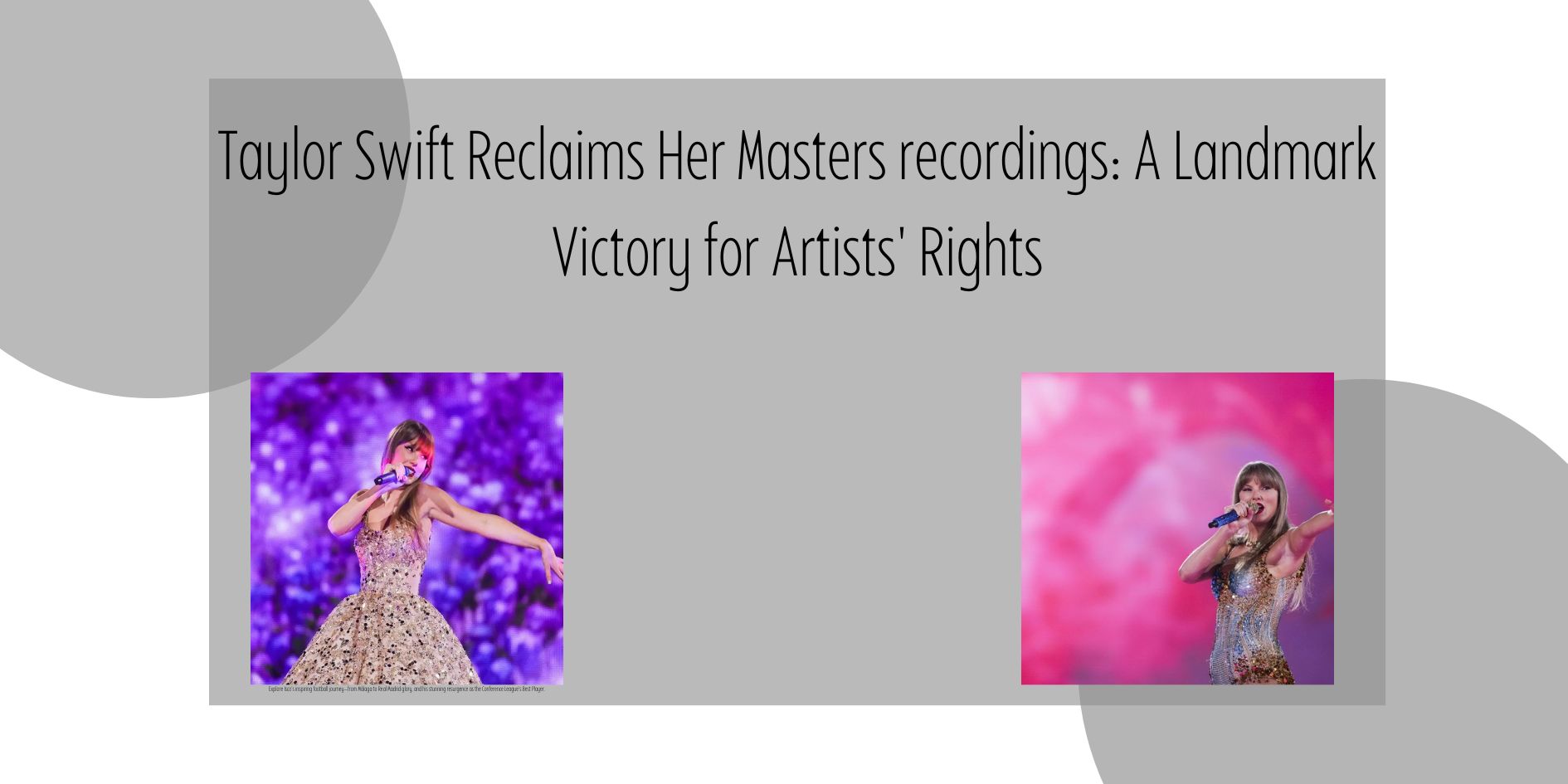Taylor Swift Reclaims Her Masters recordings: A Landmark Victory for Artists’ Rights
Introduction
In a historic move that reshapes the music industry, Taylor Swift has officially regained ownership of all her original master recordings. This milestone comes after years of public and legal battles, and it sends a strong message about creative control and artists’ rights. But why does owning her masters matter so much, and what does it mean for the future of the music industry?
Taylor Swift Reclaims Her Masters: A Landmark Victory for Artists’ Rights
On May 30, 2025, Taylor Swift announced that she has successfully regained ownership of the master recordings of her first six studio albums: Taylor Swift, Fearless, Speak Now, Red, 1989, and Reputation. This milestone concludes a six-year battle over her music rights, setting a precedent in the music industry.
The Backstory: A Fight for Control
Taylor Swift’s journey to reclaim her master recordings began in 2019 when music executive Scooter Braun acquired Big Machine Label Group, the label that originally signed Swift. This deal included the rights to the master recordings of her first six studio albums, from her 2006 self-titled debut through 2017’s Reputation.
Swift was not consulted on the sale, which led to a highly publicized fallout. She accused Braun and his partners of exploiting her work and expressed disappointment over the lack of transparency. Determined not to let others profit from her legacy, she began re-recording her albums as “Taylor’s Version,” a move both symbolic and strategic.
What Are Master Recordings—and Why Do They Matter?
Master recordings are the original versions of songs from which all copies are made. Owning them gives an artist the right to license their music for films, commercials, streaming, and more. Without this ownership, artists can be excluded from key decisions and revenue streams related to their work.
For Swift, regaining control meant she could protect the artistic integrity of her music, influence how it’s used, and ensure she—and not third parties—benefits financially.
The Big Win: Buying Back Her Masters
In May 2025, Swift finalized a deal with private equity firm Shamrock Capital to purchase her masters for an estimated $360 million. With this deal, she now owns the complete rights to all her music, including the original recordings of her first six albums.
This victory isn’t just personal—it’s a powerful statement. Swift’s decision to invest in herself shows a commitment to ownership and independence rarely seen at such a scale in the music business.
Industry Impact: A New Standard for Artists
Swift’s bold steps have already inspired other musicians to rethink their contracts and seek greater control over their work. Her case has also ignited broader discussions about artist rights, transparency in the music industry, and the ethics of private equity firms owning creative content.
Record labels may now face greater pressure to offer fairer deals, while artists—especially new ones—are more aware than ever of the importance of negotiating ownership early in their careers.
Support from Fans and Celebrities
The announcement was met with widespread applause. Fans flooded social media with support, using hashtags like #TaylorOwnsIt and #TaylorWins. Celebrities including Travis Kelce and Selena Gomez expressed admiration, calling it a “victory for all artists.”
Swift’s long-time supporters see this as a defining moment not just in her career, but in music history.
What’s Next for Taylor Swift?
While she now owns her masters, Swift has confirmed that her re-recording journey will continue with Reputation (Taylor’s Version)—expected to drop later this year. These re-recordings have become more than just music releases; they’re cultural events, empowering fans to support the versions that belong to her.
Conclusion
Taylor Swift’s successful fight to reclaim her master recordings is more than a personal triumph—it’s a revolutionary moment for the music industry. It underscores the power of ownership, the importance of artist advocacy, and the value of standing up for one’s work. As Swift herself said, “Artists should own their work for so many reasons, but the most screamingly obvious one is that the artist is the only one who really knows that body of work.
Frequently Asked Questions (FAQs)
Q1: What are master recordings, and why are they important?
Master recordings are the original versions of songs from which all copies are made. Owning them grants the holder control over licensing, distribution, and revenue generation. For artists, this means having authority over how their music is used commercially.
Q2: Why did Taylor Swift lose ownership of her masters initially?
Swift’s first six albums were recorded under Big Machine Records, which owned the masters. In 2019, the label was sold to Scooter Braun’s Ithaca Holdings, transferring the rights without Swift’s consent. Braun later sold them to Shamrock Capital in 2020.Wikipedia+3Wikipedia+3Wikipedia+3
Q3: How did Swift regain her master recordings?
Swift purchased the master recordings from Shamrock Capital for a reported $360 million. This acquisition includes not only the audio tracks but also associated videos, artwork, and unreleased materials.The Economic Times
Q4: What impact does this have on the music industry?
Swift’s move has sparked a broader conversation about artists’ rights and ownership. It has inspired other musicians to seek control over their work and challenged traditional record label practices.
Q5: Will Swift continue releasing “Taylor’s Version” albums?
Yes. While she now owns the original masters, Swift plans to continue releasing re-recorded versions of her early albums. These versions allow her to fully control and benefit from her music.
Q6: How have fans and celebrities reacted?
The announcement was met with widespread support. Celebrities like Patrick and Brittany Mahomes publicly congratulated Swift, and fans celebrated the news across social media platforms. People.com
Q7: What does this mean for Swift’s future projects?
With full control over her music, Swift has greater flexibility in how she uses her songs in future projects, including films, commercials, and new recordings. It also sets a foundation for her to advocate for artists’ rights more broadly.
Related posts :














Post Comment
You must be logged in to post a comment.